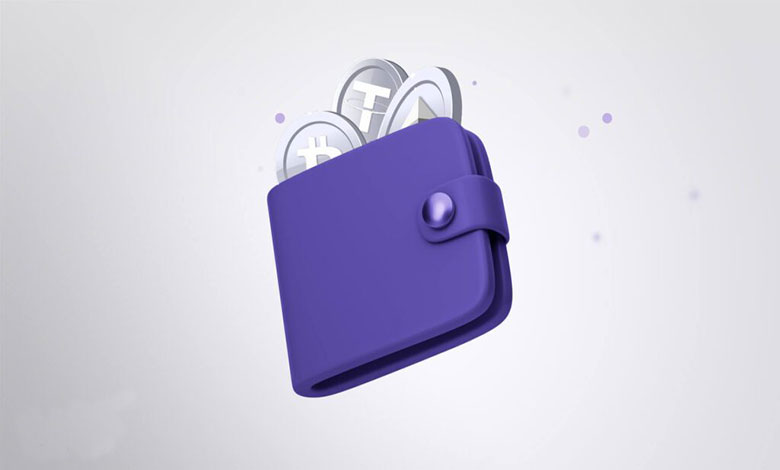Digital Wallets

Digital Wallets
Digital wallets are among the most important aspects of security and asset protection in the world of cryptocurrencies that every cryptocurrency investor encounters. Unlike traditional currencies, digital currencies do not exist in physical form; instead, digital data is used for exchange and storage. To store and manage this data, digital wallets are utilized, playing a crucial role in safeguarding and accessing digital assets.

Every cryptocurrency transaction is executed using private and public keys, which allow users to transfer their assets. These keys are stored in digital wallets, and protecting them is extremely vital. Due to cyber attacks, hacks, and scams in the cryptocurrency space, selecting a secure and appropriate wallet for managing and storing digital currencies requires close attention to security issues.
In this article, we introduce various types of digital wallets and examine the importance of security in maintaining digital currencies as well as how to choose the best digital wallet.
Types of Digital Wallets
Digital wallets refer to tools used for storing, sending, and receiving cryptocurrencies. These wallets come in various forms, each with its own features, advantages, and disadvantages.
1. Hardware Wallets
Hardware wallets are recognized as one of the most secure methods of storing cryptocurrencies. These wallets are small physical devices that store your private keys offline. With this method, even if your computer is hacked or connected to the internet, your private keys remain safe.
Hardware wallets such as Ledger and Trezor are among the most popular brands in this category. They are protected by a PIN code or password and only connect to the internet when you intend to make a transaction. These wallets connect to your devices via USB and sign transactions offline.
Advantages:
- High security due to offline storage.
- Protection of private keys against online attacks.
- Suitable for storing large amounts of cryptocurrencies.
Disadvantages:
- Requires physical transportation and maintenance.
- Costs more compared to software wallets.
2. Software Wallets
Software wallets are applications installed on personal computers, laptops, or smartphones. These wallets allow users to manage their digital assets quickly and easily and can be divided into two main types:
- Desktop Wallets: These wallets are software that is installed on a computer and stores your private keys on your own device. Well-known examples of this category include Exodus and Electrum.
- Mobile Wallets: These wallets are designed as mobile applications and are very popular due to their ease of use and quick access. Notable examples include Trust Wallet and Mycelium.
Software wallets provide ease and quick access but, since they are connected to the internet, are exposed to hacking and cyber attacks.
Advantages:
- Ease and simplicity of use.
- Quick access to assets and fast transaction execution.
Disadvantages:
- Less secure compared to hardware wallets due to internet connectivity.
- Susceptible to hacking and malware attacks.
3. Paper Wallets
Paper wallets are one of the simplest methods of storing cryptocurrencies offline. In this method, private and public keys are printed on paper in the form of a QR code or text. Because the private keys are stored offline, this method is considered one of the safest ways to store digital currencies.
However, paper wallets also face certain risks. For instance, if the paper containing the private keys is lost or damaged, access to the assets becomes impossible. Additionally, performing transactions requires the use of online software to enter the private keys, which can reduce their security.
Advantages:
- Offline storage and very secure if kept properly.
- Very low cost.
Disadvantages:
- Risk of physical loss or damage to the paper.
- Manual input of keys required to execute transactions.
The Importance of Security in Storing Digital Currencies
Due to their digital and decentralized nature, the storage of cryptocurrencies requires special attention to security issues. In this section, we discuss some key security concepts and methods of protecting digital currencies.
1. Private and Public Keys
Every digital wallet possesses two types of keys: a public key and a private key. The public key is similar to a bank account number that you can share with others to receive cryptocurrencies. However, the private key acts as the access code to your assets and must be rigorously protected. If your private key is exposed, anyone can access your assets.
2. Hacks and Security Issues
Hacking attacks in the cryptocurrency space are very common. Some exchanges and digital wallets have been victims of widespread hacker attacks over the years. For example, in 2014, the exchange Mt. Gox—once the largest Bitcoin exchange—was hacked, resulting in the theft of over 850,000 Bitcoins.
To prevent such attacks, users should employ advanced security measures such as two-factor authentication (2FA) and regular backups of their wallets.
3. The Importance of Backups
Backing up digital wallets is one of the most important ways to protect assets. In the event of device failure or accidental deletion of wallet software, without proper backups, the recovery of cryptocurrencies becomes impossible. Users should regularly create backups of their private keys and recovery phrases (Seed Phrase) and store them in a secure location.

Introducing Secure Wallets
- Ledger Nano S and Ledger Nano X
These two models of hardware wallets are produced by the company Ledger and are recognized as some of the most secure digital wallets. They store private keys offline and only connect to the internet when performing transactions.
- Ledger Nano S: A simpler and more affordable version suitable for beginners.
- Ledger Nano X: Features Bluetooth connectivity for easy pairing with mobile devices and offers advanced capabilities.
- Trezor
Another reputable hardware wallet is Trezor, manufactured by SatoshiLabs. Like Ledger, Trezor stores private keys offline and supports hundreds of cryptocurrencies.
- Trust Wallet
This mobile wallet is one of the most popular software wallets, backed by the Binance exchange. Trust Wallet supports a wide range of cryptocurrencies and is favored by users for its simple interface and adequate security.
- MyEtherWallet (MEW)
MyEtherWallet is a web-based wallet specifically designed for storing Ethereum and tokens based on the ERC-20 network. Although web wallets are generally less secure than hardware wallets, MEW employs robust encryption and a secure user interface, making it a suitable option for Ethereum users.
How to Choose the Right Wallet
Choosing the right digital wallet depends on several factors. In this section, we discuss some of these factors:
1. Type of Cryptocurrency
Some wallets support a wide range of cryptocurrencies, while others are designed only for specific currencies. For example, if you intend to store Bitcoin, Ethereum, and ERC-20 tokens, you should choose a wallet that supports these currencies.
2. Need for High Security
If you have a large amount of cryptocurrency and are looking for high security, hardware wallets such as Ledger and Trezor are the best options. However, if you prefer quicker and easier access to your assets, software wallets might be more suitable.
3. Ease of Use
For beginner users who value simplicity, mobile wallets like Trust Wallet or Exodus are a good choice. These wallets have user-friendly interfaces that allow for easy management of assets.
4. Amount of Assets
If your holdings are small and you only use cryptocurrencies for minor transactions, free software wallets might suffice. However, if you possess a significant amount of digital currency, it is advisable to use hardware wallets to ensure greater security.
Conclusion
Choosing a secure and suitable wallet for storing digital currencies is one of the most important decisions any user or investor must make. Given the wide variety of hardware, software, and paper wallets available, the selection should be based on personal needs, security requirements, the type of cryptocurrency, and ease of use.
The most crucial point among these is to safeguard your private keys and perform regular backups. By adhering to security guidelines and using reputable wallets, one can securely and safely store and manage digital currencies.







